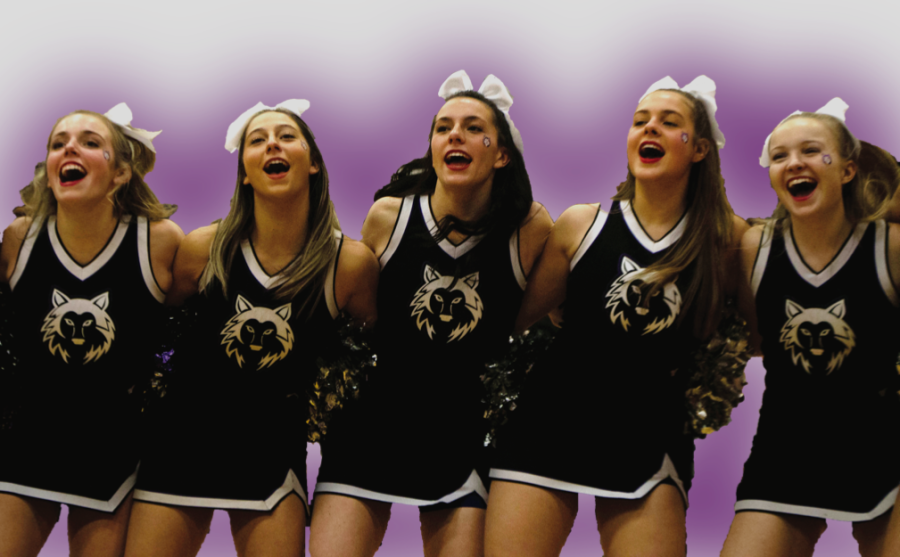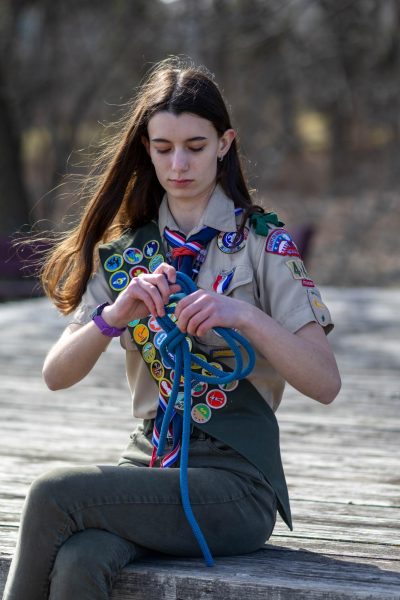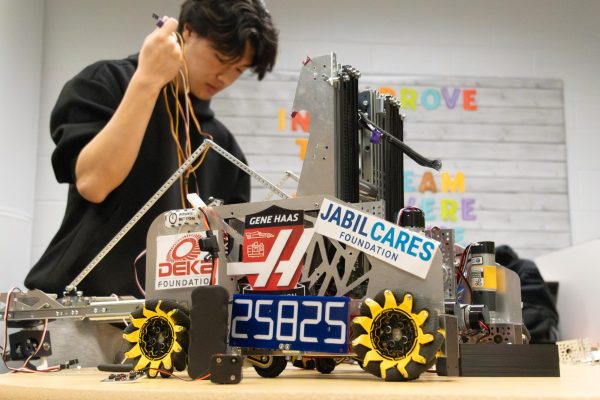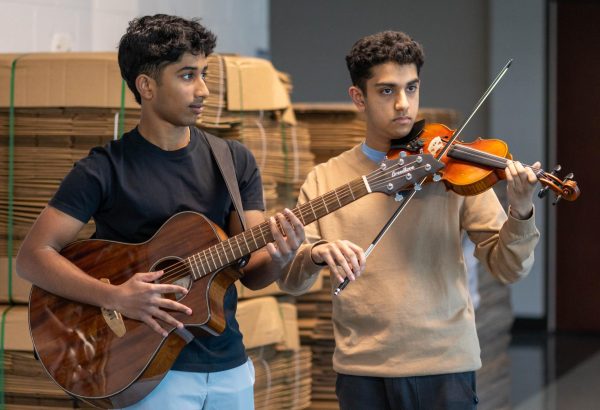Like a girl
Does sexism surround female sports at Northwest?
Senior J Hadleigh Fallon (center) and the cheer squad lead a chant at halftime of a boys basketball game, March 2. “I think a lot of people think high school cheer is just cheering on the sidelines at football games and basketball games,” Fallon said. “We also do competitions and harder things.”
Every day after school, the varsity girls softball team hauls their gear to the Blue Valley Rec Center to practice, while the varsity boys baseball team practices on their reserved BVNW fields, according to senior varsity softball player Brynn Grosdidier.
“[The boys baseball team] has two big practice fields, and we don’t have anything, so we’re lugging our stuff over to Blue Valley Rec every day,” Grosdidier said.
According to Athletic Director John Hilton, Blue Valley Northwest used to share their baseball fields with both Blue Valley and Blue Valley North. While BV and BVN constructed their own softball fields, Northwest did not, due to limited space and greater student interest in baseball than softball, Hilton said.
As well as the unequal availability of resources between the two, softball receives much less recognition than baseball, according to Grosdidier. She said people do not show up for softball the same way they do for baseball.
“Nobody ever wants to come to games,” Grosdidier said. “We have no fans, ever. I’ve gone to baseball games in the past, and [the boys] always have fans.”
In addition to the unbalanced treatment between baseball and softball, Grosdidier, who is also on the varsity girls basketball team, said girls basketball is not recognized on the same level as boys basketball. While Grosdidier said she appreciates having fans when they do come to her games, she said they usually only show up at the end of the girls game, just before the boys game starts, and do not actually watch her game.
“Boys basketball is always gonna be seen as better, just because it’s boys basketball,” Grosdidier said. “We have a lot of good players that can do really amazing things. I wish people would want to watch our sport.”
This past basketball season, Grosdidier said the team worked hard every single day for two hours or more. She said they worked hard in and out of practice. But, according to Grosdidier, no one ever saw their hard work pay off because while winning is expected out of boys sports, fans did not expect it out of the girls.
“We work just as hard or harder than boys,” Grosdidier said. “The level of commitment that women athletes have is so insane. People just don’t see it because they choose not to show up for us.”
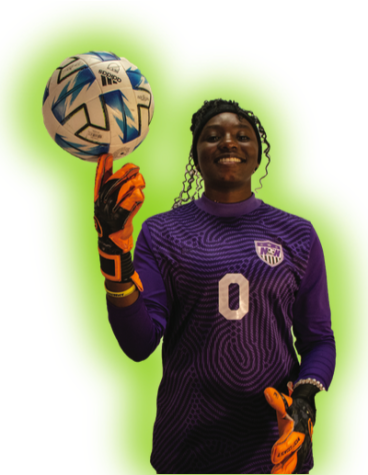
In addition to having less fans at their games, the girls basketball team also did not get to have the BVNW band in their sub-state game against Olathe West on March 1. The next day though, the band showed up for the boys sub state game.
The lack of support impacts Grosdidier, as she said it shows her how underappreciated girls sports are at Northwest.
“The fact that people don’t show up for us is very disrespectful to me,” Grosdidier said. “I feel like you’d want to support your peers and you’d want to support the people that you surround yourself with every day. And whenever people don’t show up and don’t support me or my team or the program as a whole, that, to me, is just disrespectful and it shows they don’t really care about who I am or what I do.”
According to senior varsity cheer captain, J Hadleigh Fallon, the BVNW cheer squad also demonstrates a high level of hard work. Except at Northwest, cheer does not receive the same amount of support compared to other sports, despite the fact they have won state twice in the last four years. Cheer is not considered a sport at Northwest; instead, KSHSAA classifies it as an activity, according to Hilton. However, Fallon questions why cheer is not a sport.
“When we put together big routines, it’s so much work for all of us,” Fallon said. “You can see every single person and what they’re doing on the mat. I honestly don’t know why that’s not considered a sport, but it should be.”
Just like any other sport at Northwest, the varsity cheer squad has a lot of morning and evening practices during their competition season, which goes from May through the end of the basketball season. During the summer, Fallon said cheerleaders are expected to be at the Blue Valley District Activity Center (DAC) at 6 a.m., and the cheer team has to do conditioning if any member is late.
Fallon said although their dedication is similar to other athletic programs, other student athletes stereotype cheerleaders as stupid, overly happy and peppy, with no depth to their talent.
People often see the team cheering on the sidelines and assume that is all the cheerleaders do, according to Fallon. In response, she said people do not understand all of the work that goes into the competitive aspects of cheer.
“There are some parts of cheer that no other kind of athlete could do unless they trained for it,” Fallon said. “Some of the stunting that we do, I don’t think any football player could just get in there and do it.”
Not only are cheerleaders not given credit for the work they put in, they are overshadowed by other Northwest sports, even after major achievements, Fallon said. Earlier this year, the assembly held for the cheer team winning state was supposed to feature the cheerleaders passing down their trophy and celebrating their victory, but according to Fallon, a large part of the assembly was dedicated to the football team.
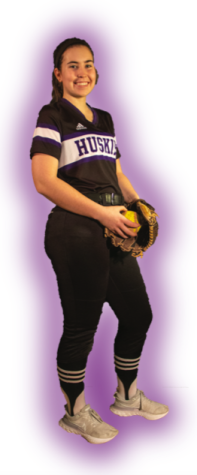
“For other people to walk up to me or other cheerleaders and say that it was a football assembly, and [for there to be an] email that said it was a football assembly, made it not as special to us,” Fallon said. “We kind of did get robbed of having our own assembly.”
Fallon said this disregard for highlighting the cheerleaders accomplishments showed the sexism in sports as well as what Northwest actually cares about.
“When you’re supposed to have an assembly for just the cheerleaders and you bring up the football guys for such an extensive amount of time, it shows people want to talk about boys’ sports and activities more than they want to talk about girls,” Fallon said.
According to Fallon, cheer is an underappreciated women’s sport, but it is not the only one. Sophomore varsity goalkeeper Nimu Karani said she feels that women’s soccer has always been viewed as less compared to men’s soccer, at both the high school and the professional level.
“Women’s soccer is definitely considered second to men’s soccer, mainly because people don’t care as much,” Karani said.
In 2021, the average annual salary for a member of the women’s team was $54,000 per year, whereas the average men’s Major League Soccer player’s salary was $398,725 a year.
In 2016, the fight for equal pay officially began for the United States Women’s National Soccer Team (USWNT). Five of their players filed a federal claim of wage discrimination, claiming they earn significantly less money than the United States Men’s National Soccer Team.
On February 22, 2022, The U.S. Soccer Federation announced they will pay $24 million to the USWNT as part of the settlement for equal pay. Girls varsity soccer coach Michelle Pothoven said she is thrilled to see women continue to fight for equal pay.
“I think that it’s so exciting for girls to see women who are not settling, who are going after their value,” Pothoven said. “When you look at what each [team] has produced, the women’s side has produced numerous world championships [and] Olympic gold medals. For them to be making a fraction of what the men’s team was making was embarrassing.”
Karani said she is also excited to see the USWNT begin to make equal pay. She said she feels that as the pay between male and female soccer players becomes more equal, more women will want to continue their soccer careers.
“I think the reason why so many good, really talented women’s soccer players weren’t going to play professionally is that the opportunities [were not the same as] the guys. I think that after [the USWNT is paid equally], it’s really going to open up a lot more competition and a lot more people who want to play,” Karani said.
As pay becomes more equal between men and women, Karani hopes the treatment between the two genders will become more equal as well.
“It’s so much harder [for women] to get exposure and be recognized for something that [they’re] really good at because people always downplay womens sports,” Karani said.
Not only is it harder to get recognized as a female athlete, but according to Pothoven, girls soccer is also often overlooked compared to boys.
“The boys [soccer team] definitely gains more of a crowd [and] gains more attention. Sometimes I think people forget we have girls soccer in the spring,” Pothoven said.
Despite feeling overlooked at times, Karani feels that her love for soccer is what drives her to continue playing, not the amount of fans or amount of recognition the team receives.
“The passion for the sport is what keeps me going. It’s not the money or college, it’s just the passion for it, so if it’s what you really love, just keep doing it,” Karani said.
The only way to combat the stereotypes surrounding girls sports, Karani said, is to prove your worth to anyone who questions it.
“Obviously, [boys] will look down on you because you’re a girl, but I usually just work hard to prove them wrong,” Karani said. “I mean nothing [beats] proving someone wrong then showing it on the field.”

Reagan King is a junior and a writer for “The Express.” This is her second year on staff. Outside of newspaper, she plays varsity tennis for BVNW and is involved with Femineers. Reagan also enjoys spending time outside and biking with friends. Other notable things about Reagan are her Chipotle addiction and her love for binging shows like “Criminal Minds” and “Grey’s Anatomy.” This year she is excited to improve her writing and cover a wide variety of topics.

Alyssa Gagnon is a senior and writer for “The Express” as well as a designer. This is her third year on staff. Outside of newspaper, Alyssa is involved in soccer, Quill and Scroll, NHS, SNHS and Kay Club. In her free time, she loves to hang out with her friends, travel, play soccer, go to the gym, and listen to music. Alyssa is very thankful to be apart of “The Express” and is excited to see where this year takes her.

Lila Vancrum is a senior and Editor-In-Chief for “The Express.” This is her third year on staff, previously serving as a photographer and photo editor. Outside of newspaper, Lila is involved in girl’s soccer, KAY Club, Team Up for St. Jude’s, NHS and Quill & Scroll. In her free time she enjoys going out to eat, hanging out with friends and binging TV shows, her favorites include “One Tree Hill” and “Pretty Little Liars.” Lila is excited to take on the role of being an Editor-In-Chief and hopes to improve the photography for stories and social media.


